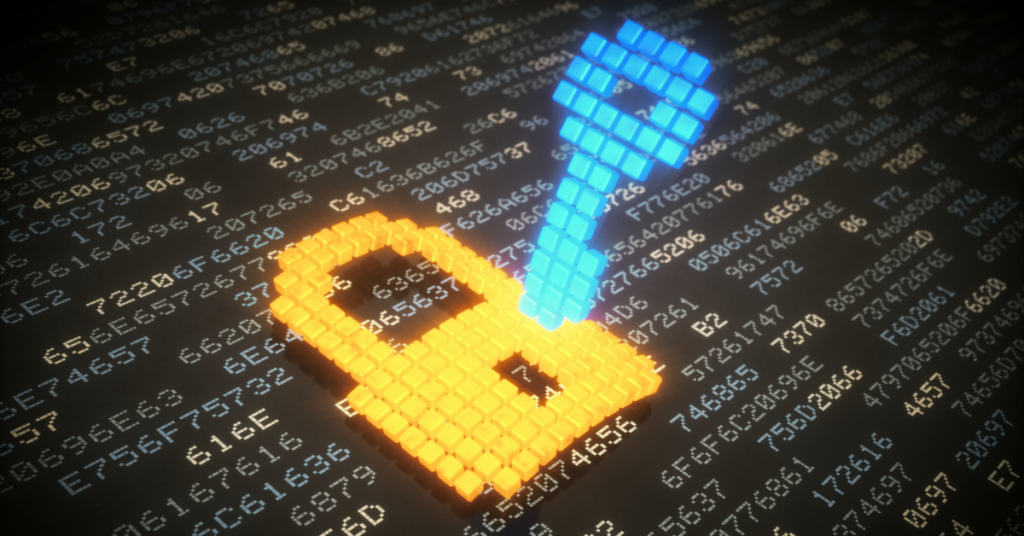Encryption vs Hashing: Which is Better for Your Data?

- Encryption vs Hashing: What is the Difference?
- When is Encryption a More Suitable Method for Data Protection?
- What are Some Common Encryption Algorithms Used in Cybersecurity?
- How Does Hashing Help in Protecting Data Integrity?
- Can Encryption and Hashing be Used Together for Enhanced Data Security?
The digital tide rises, and with it, comes a chilling truth: the cost of cybercrime will rocket to $10.5 trillion by 2025, up from $6 trillion in 2021. This alarming cost trajectory underscores the need for robust data security measures and cybersecurity techniques. Between all of this there pops a debate of encryption vs hashing, both crucial tools for safeguarding sensitive information. Therefore, understanding the distinct roles and intricacies of these methods is crucial in crafting effective cybersecurity strategies. As we navigate this increasingly interconnected world, prioritizing data defense and understanding the encryption vs hashing comparison becomes essential for securing our valuable information in the face of evolving cyberthreats. Let us, therefore, take a closer look at what is encryption, what is hashing, and find out more about cybersecurity techniques—encryption vs hashing vs salting.
Encryption vs Hashing: What is the Difference?
Encryption vs hashing—two cryptographic techniques that serve distinct purposes. The former transforms data into a reversible format, requiring a decryption key for retrieval. Additionally, it locks data with a key, like locking away a secret message in a box. Only those with the key can unlock it, ensuring confidentiality during transmission or storage. Moreover, it’s a reversible process vital for protecting sensitive information.

Hashing, on the other hand, creates a unique fingerprint of data, like a tamper-proof seal. It’s a one-way process, generating a fixed-length code that verifies data integrity. If the data changes even slightly, the hash changes completely. This makes hashing ideal for password storage and file verification, ensuring data authenticity. In essence, encryption shields data with keys, while hashing protects its integrity with irreversible fingerprints. Therefore, in an encryption vs hashing discussion, both techniques play vital roles in strengthening cybersecurity.
In addition to that, there is another technique called salting. This usually refers to hashing passwords. It is essentially a distinct value that can be appended to the end of the password to get a separate hash value. This strengthens the hashing procedure’s defenses against brute force attacks in particular. So, you need to make the correct choice between encryption vs hashing vs salting.
ALSO READ: How to Report a Cybercrime Online Using a Cybercrime Portal?
When is Encryption a More Suitable Method for Data Protection?
To understand when encryption is more suitable, we first need to understand what is encryption in detail. Encryption works when confidentiality reigns supreme. The secrecy of personal data, medical records, or financial transactions is non-negotiable. Encryption thrives in such scenarios. Here’s why:
- Encryption scrambles data with a secret key, turning it into unreadable gibberish for unauthorized eyes. Even if intercepted, the data remains locked without the key, preserving privacy.
- Decryption requires authorized possession of the key, acting like a VIP pass. This granular control restricts access to designated individuals or systems, minimizing leaks and misuse.
- On public networks, unencrypted data is vulnerable. Encryption shields data during transmission, protecting it from prying eyes even on insecure channels.
- From HIPAA to GDPR, regulations often mandate encryption for sensitive data. Using strong algorithms and managing keys securely demonstrates compliance, avoiding hefty fines.
While hashing verifies data integrity, it doesn’t unlock the original content. So, for true confidentiality with reversible access, encryption is the trusted vault for your most valuable information. Remember, its effectiveness hinges on choosing robust algorithms and managing the keys securely.
ALSO READ: What is SIEM in Cybersecurity? How Can it Protect Your Business?
What are Some Common Encryption Algorithms Used in Cybersecurity?
When it comes to encryption vs hashing, algorithms also play a distinct role. Let’s take a closer look at these clever algorithms used in encryption. These algorithms scramble our information into uncrackable codes, keeping prying eyes at bay.
1. Advanced Encryption Standard (AES)
Imagine a bank vault guarded by a 128-bit, 192-bit, or even 256-bit key (depending on your security needs). That is AES in a nutshell. This ultra-secure algorithm, adopted by governments and tech giants alike, scrambles data into an indecipherable mess using a series of complex mathematical operations. As a result, it is considered very efficient.
2. Rivest-Shamir-Adleman (RSA)
RSA is like a two-key system—a public key for everyone to see (like a mailbox address) and a private key kept highly secure and with just a few people (like a house key). In essence, anyone can send you an encrypted message with the public key, but only you can unlock it with your private key. As a result, this asymmetric encryption is perfect for secure online transactions and email communication.
3. Elliptic Curve Cryptography (ECC)
ECC is like a super-efficient version of the RSA. It uses complex mathematical operations to achieve the same level of security with much shorter keys. This makes ECC ideal for resource-constrained devices like smartphones and IoT gadgets, where processing power and storage are critical.
4. Triple DES (3DES)
3DES is akin to a triple-bolted door. It takes the classic Data Encryption Standard (DES) algorithm and applies it three times over to each data block. As a result, it is significantly tougher to crack. While not as robust as AES, 3DES is still widely used for legacy systems and applications requiring backward compatibility.
5. Blowfish
Blowfish is considered the swiftest encrypting algorithm. To elaborate, it is fast, efficient, and relatively easy to implement. While it is not as strong as AES or RSA, it is a great choice for general-purpose encryption, like securing files or protecting data at rest.

How Does Hashing Help in Protecting Data Integrity?
To begin with, let’s revisit what is hashing. This is a technique of creating unique fixed-size codes from any data. The slightest alteration throws the hash into disarray, exposing tampering instantly. As a result, this one-way security technique guards file integrity, verifies downloads, and secures passwords by storing their “digital fingerprints” instead of plain text. Therefore, if utilized properly, it is a silent sentinel for your data, ensuring its authenticity in every byte.
Can Encryption and Hashing be Used Together for Enhanced Data Security?
Encryption vs hashing, distinct in their roles as cybersecurity techniques, can form a powerful alliance for comprehensive data security. Picture encrypting a document with a key, then locking it with an unbreakable seal created by hashing. This duo can ensure a tamper-proof system for data storage. Therefore, any attempt at altering the data breaks the seal, which instantly alerts you to potential threats. As a result, this synergistic approach ensures both confidentiality and data integrity. This is like a double-layered defense, making sure your data is protected from attackers. Encryption conceals the data while hashing acts as a verifier of authenticity, constructing a robust security fortress for any organization’s information.
ALSO READ: 5 Best Tools for Ethical Hacking: A Beginner’s Guide
In the encryption vs hashing debate, their distinct roles in cybersecurity become clear: encryption secures data like a vault, while hashing acts as an unbreakable seal, ensuring integrity. Together, they can secure data against potential threats. For a deeper understanding of these critical concepts, explore Emeritus’ cybersecurity courses and equip yourself with the knowledge to become an expert in cybersecurity.
Write to us at content@emeritus.org






